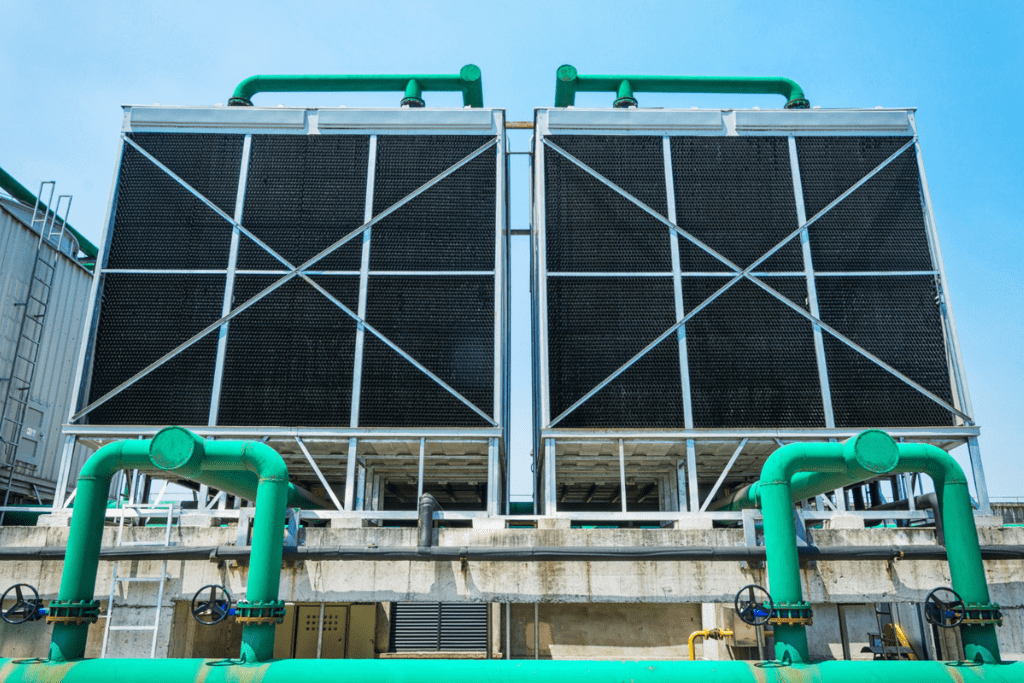How Do Compressed Air Filters Ensure a Clean and Contaminant-Free Supply?

It’s crucial to maintain a clean delivery system when using compressed air. Many food or beverage products require the compressed air used in their packaging or manufacturing to be of optimal quality. Equally, various manufacturing procedures require clean, contaminant-free compressed air.
A compressed air filter must be used to maintain the quality of the air produced in a system. Air filters work to remove contaminants from both the atmosphere and the air compression machines. Today, we’ll examine how these semi-permeable barriers work and why they are essential.
Understanding Contaminants in Compressed Air
Air compression systems are designed to draw air from the atmosphere to be pressurized. As a result, contaminants in the atmosphere need to be removed. Supplying clean compressed air is vital for the success of many different company operations.
However, atmospheric air is not the only potential source of contaminants. Oil, water, rust particulates, oxidation scale in piping, and water vapor can become byproducts of the compression process within the air compressor machines. Hydrocarbons and airborne odors can also constitute contaminants and should be filtered for specific applications requiring a sterile air supply.
Furthermore, contaminants can exist at molecular levels. Carbon dioxide, monoxide, water vapor, and even micro-organisms are minimal, yet unwanted, contaminants that must be carefully filtered with specialized systems.
Types Of Air Compressor Filters
Various types of filters are used to effectively filter the air entering and exiting a compressed air system. Some may be simple, generalized filtration systems designed to catch and reduce the amounts of particulate and contaminants in the atmospheric air supply. Other air filters can be specially designed to remove certain particulates and contaminants of certain sizes or compositions. Consult with a qualified air compressor supplier whenever possible for the most significant insight into the filter differences.
Particulate Filtration
Particulates are defined as airborne solid matter and liquid droplets. Particulate sizes can range from minute, but slightly visible, down to microscopic pieces measured in microns. For scale, one micron is equivalent to one-millionth of a meter. Because particulate pieces can be so small, particulate filters have to be able to screen and catch molecularly-sized contaminants.
Particulate filtration is essential for applications in which the compressed air quality must be very high. Using compressed air in scientific laboratories or lab applications, processing and packaging microchips and technology-related parts, or even packaging foods and beverages often require particulate filtration.
Since the particulate filters are so delicate and can become clogged faster, it’s usually recommended that they be used in tandem with other filters, which can catch larger particles and contaminants before they reach the particulate filtration stage.
Coalescing Filtration
Removing moisture and water particulates from a compressed air supply is necessary for a number of reasons. Water and aerosols in the atmosphere can cause problems with air supply quality.
They can also cause problems in compression machine motors, tanks, air supply lines, and pneumatic tools. Rust and corrosion are terrible for air compression systems and will significantly shorten their life expectancy.
A coalescing filter captures and removes water and other airborne liquids, such as oil. When the moisture droplets are caught, they coalesce with additional captured moisture to make larger droplets. These droplets can be drained and removed from the compressed air supply, air delivery tubes, and the compression machinery.
Activated Carbon Filtration
This form of filtration removes contaminants but also helps sterilize the air. Applications in which the air is needed for breathing and respiration, is used in a scientific or tech laboratory, or is used in pharmaceutical operations often require activated carbon filtration.
These filters can screen and trap airborne odors, oils, hydrocarbons, and vapors through surface-active absorption. Like other fine particulate filters, Activated carbon filtration works best when used in tandem with other filters that trap larger particulates before they can move further downstream into the air compression system.
Filter Maintenance and Replacement
Air filtration is critical for proper air compression operations and air compression systems’ efficiency and life expectancy. If the filters aren’t regularly checked and replaced, their effectiveness can be seriously compromised. As a result, the air quality and compression system sustainability will suffer.
Dirty filters can also affect the energy needed to run the compressed air system. The more the system has to run to maintain pressure, the more energy it requires. As a general rule, the lower the quality of the filter, the shorter the amount of time they’ll operate efficiently and effectively.
The filters in an air compression system should be checked and replaced consistently. Waiting too long between replacements can lead to reduced air quality, damage to the compression system itself, and the potential for the final product or procedure to face deterioration and destruction.
Importance of Proper Filter Sizing and Selection
Choosing the proper filter type usually depends on the nature of the company or organization and its products or procedures. The amount of acceptable pressure drop for a system or the end usage will also determine many filter applications. Consulting with qualified professionals to determine the types of filtration your system will need can be an essential step to include.
Pressure drop refers to the amount of pressurization lost from the actual compression process to the air output. Certain filters are excellent for providing advanced filtration of microns but may cause too much pressure drop for a certain application. The flow capacity of a filter should be carefully considered when choosing which one to use.
ISO Air Quality Standards and Filtration Levels
Managing and maintaining the proper air quality ratings for your compressed air output will depend on what your company and the overall industry levels require. Fortunately, ISO air quality standards have been developed to guide the correct filtration systems required for operation.
As each application and process using compressed air differs, it’s essential to consult the standards and follow international recommendations for air purity. Again, this is an excellent opportunity to connect with an air compression specialist to understand how these standards relate and pertain to your company.
Filtration System Design Considerations
Choosing the correct and necessary air filtration for an air compression system can be daunting for anyone, even those familiar with these types of systems. Not only will you need to consider the application of the compressed air, but it’s also important to consider the atmospheric environment from which the air is being extracted. A humid atmosphere may require different filtration from a dry and dusty environment.
The types and number of filters used is also an important consideration. Both air quality and airflow output can be affected and should be considered. Plus, the type of air compression system may dictate the types of filters that are acceptable to use.
Choose Wisely with Assistance
Whether you’re considering integrating an air compression system into your company or just looking to improve the efficiency and effectiveness of your current system, consulting with professionals is generally beneficial. At Complete Engineered Solutions, our qualified associates are well-trained and experienced in installing, managing, and servicing various air compressors, compression systems, and filtration types.
We also specialize in industrial vacuum systems, chillers, and nitrogen generators, allowing our team to provide comprehensive advice and service for many questions and concerns. Contact the team today to see which systems best suit your company’s needs.
